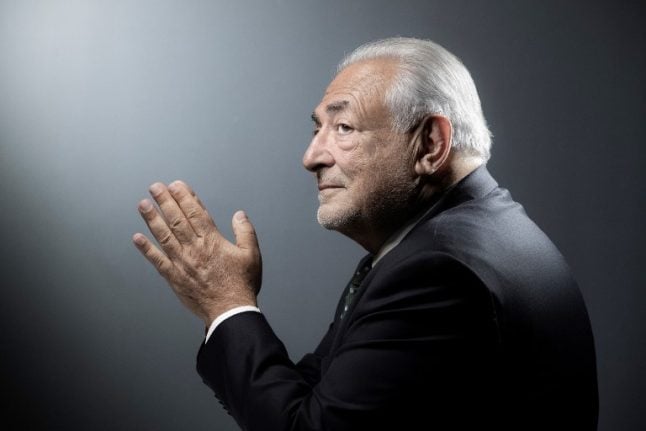A judge was expected to accept the dismissal of recommendation at a hearing on Tuesday, bringing to an end the three-month-long criminal case against Strauss-Kahn that humiliated the French politician and crippled his career.
“We respectfully recommend that the indictment be dismissed,” prosecutors said in a motion filed to Judge Michael Obus after weeks of agonizing over the credibility flaws of his accuser, hotel maid Nafissatou Diallo.
Strauss-Kahn and the maid did have sex, but to prove this was forced would mean relying solely on the maid’s testimony, according to the document.
And the maid’s history of lying means that charges cannot be pursued, prosecutors said in a graphic 25-page motion.
While the evidence was not definitive, the case really collapsed because the maid’s repeated lies and “their cumulative effect would be devastating” if the case went to trial, the motion said.
A lawyer for the 32-year-old Guinean immigrant hit out angrily after being told of the decision at the prosecutors’ offices in Manhattan, where a media scrum and hundreds of onlookers greeted their arrival.
Wearing black trousers and a beige jacket, Diallo, who says Strauss-Kahn forced her into oral sex and tried to rape her, stepped out of a black car accompanied by lawyer Kenneth Thompson and protected by bodyguards.
“The Manhattan district attorney, Cyrus Vance, has denied the right to a woman to get justice in a rape case,” Thompson said after the brief meeting, which lasted less than 15 minutes.
“If the Manhattan district attorney, who is elected to protect our mothers, our daughters, our sisters, our wives and our loved ones, is not going to stand up for them when they’re raped or sexually assaulted, then who will?”
Strauss-Kahn’s legal team, on the other hand, said the former French politician was “grateful” the New York prosecution team had concluded “that this case cannot proceed further.”
“We have maintained from the beginning of this case that our client is innocent,” said lawyers William Taylor and Benjamin Brafman.
The case has been one of the most closely watched in New York in many years, pitting the privileged, super-wealthy Frenchman against a Guinean housemaid employed by the Sofitel hotel in Manhattan.
Not only did Strauss-Kahn have to resign as head of the IMF after being sensationally pulled from his first-class seat on an Air France flight bound for Paris on May 14, but he had to abandon what was expected to be a successful challenge of President Nicolas Sarkozy in upcoming elections.
The case began to unravel weeks later when it was discovered that Diallo had been caught lying on her asylum application form, including about a gang rape she said she suffered back in her home country of Guinea.
In addition, she was said to have discussed Strauss-Kahn’s wealth in a telephone conversation with a Guinean friend currently held in a US prison.
Prosecutors would need to convince a jury beyond reasonable doubt in criminal court and, legal experts say, Diallo’s credibility on the witness stand was likely to have been weakened beyond repair.
Thompson planned to ask the judge overseeing the case to appoint a special prosecutor because he believes Vance had mishandled the case, but legal experts said this effort would almost certainly be in vain.
Even if Strauss-Kahn does walk free, his own reputation has suffered gravely and Diallo has filed a civil case against him, seeking unspecified damages, alleging a “sadistic” sex attack.
If the judge formally dismisses the charges on Tuesday, Strauss-Kahn will be free to return to France, where his arrest in New York and brief imprisonment before being freed on bail caused a political uproar.
He could in theory return to frontline French politics, but no one back in France is expecting a return in force.
“I don’t think he can hope for a center stage role in French politics now,” said political scientist Gerard Grunberg of the prestigious Sciences-Po school in Paris.
“His public image is much deteriorated and the Socialist Party and its leaders must be mad at him for having missed this moment of opportunity. Neither the public nor the party want to see him back on the frontline.”
In France, a prominent Socialist running for the presidency, Francois Hollande, said he was happy for Strauss-Kahn and his family that the ordeal was over and said “it is up to him, at a time he deems opportune… to decide what he wants to do.”
His legal travails are also far from over.
Diallo’s French lawyer was to file a separate complaint on Tuesday, accusing a deputy mayor in Sarcelles, near Paris, of pressuring a woman who claims to have had a liaison with Strauss-Kahn not to give testimony.
And despite the apparent collapse of the New York case, he could still face further sexual assault charges when he returns to France.
In one case, 32-year-old writer Tristane Banon has filed a complaint alleging the 62-year-old Socialist politician tried to rape her after luring her to a Paris flat in 2003.
In a separate action, Strauss-Kahn has announced his intention to sue Banon for defamation, alleging she invented the story to help publicize her writing.


 Please whitelist us to continue reading.
Please whitelist us to continue reading.
Member comments